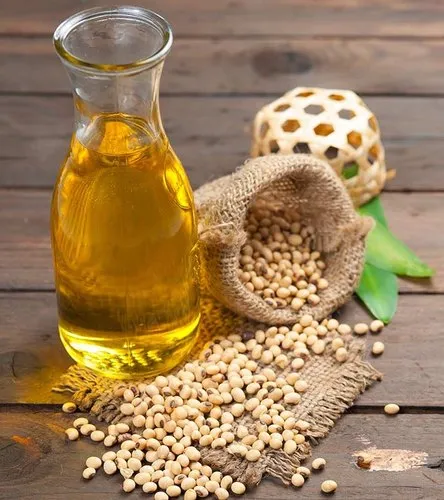Your cart is currently empty!
Refined Oils: Exploring the Health Benefits
In these modern times, oils are indeed used in cooking and preparation of food. Oils are used from frying jobs to dressing salads and have many other uses. Most commonly used among all oils are refined oils. There have been increasing questions on the health impacts of refined oils.
What are refined oils, and why are they so popular at kitchen cabinets around the globe? On this blog, we will explore completely the processes of refining oils, types of oils, their nutrition properties, and most importantly, some of the adverse effects they have on health. We will then compare refined oils and unrefined ones and what best options are for healthy living.

Refined Oil
Refined oils are oils such as vegetable or seed derived oils that undergo a process of manufacturing for removal of impurities, colors, and odors in order to make the oils more stable towards a wider variety of uses. The refining includes the bleaching, deodorizing, filter where it leads to the extension of shelf life, mouthfeel improvement, as well as the appeal to the eyes.
All these do help an oil to be stable at high temperatures during cooking and keep the oil from spoiling faster, but at the same time, the process strips them of some of their natural nutrients found in raw, unrefined oil.
The Refining Process
Having this, the refining oil goes into a number of processes:
Degumming: This is removal of phospholipids or gum from the oil, which can cause the oil cloudy.
Neutralizing: This step involves removing any free fatty acids thus producing an oil with bitter flavor.
Bleaching is typically removing color from oils, primarily oils by means of bleach, chemical, which removes impurities, pigments, or any contaminations present in the oil. After this whole process, oils are bright golden and pure. Deodorizing mainly is achieved with steam or at high temperature applied against the odor or taste that the oils take on owing to their natural flavor or due to contamination. Winterizing: this procedure cools the oil from the state that it would freeze at temperatures below such. However, this oil is tasteless thus such treatments and very rarely colorless or pale shade. It provides the highest smoke points for oils which can use for frying as well as other high-temperature cooking.
The Types
Refined oils: There are many of such types purified from different raw materials with different types of formulations. Below are general categories of such oils:
Refined vegetable oil: Without a doubt, it is the most common type of household oil consumed by humans all over from east to west. It is oil extracted from different vegetables such as soy, sunflower, and corn.
Refined Canola Oil: Majorly used for baking, frying, and sautéing purposes from canola seeds (a variety of rapeseed).
Refined Sunflower Oil: This refined sunflower oil is extracted from sunflower seeds and is mainly used for culinary purposes as well as in processed food products. It contains the mildest odour vitamins E enriched with vitamin E.
Refined palm oil: This oil is obtained from the palm fruit of oil palm trees. This oil is essentially used throughout the world for cooking and processed foods. There are, however, sustainability concerns raised by the environmental issues of palm oil cultivation.
Refined Soy oil: This is the oil which is derived from soybeans. It finds its way into considerable applications and is widely used in various processed food items as well as into the industrial manufacturing of food.
Refined Peanut Oil: Known as one of the popular oils for frying, refined peanut oil is high in smoke point and a flavor that is neutral. It is extensively used in Asian cuisine.
Refined Oils and Health
There have health issues linked to the excessive use of refined oils in very easy and commonly used ways. The user should know and understand the advantages and disadvantages of oil usage in diet.
Pros of using refined oils
Long shelf life: As impurities are removed through refining and do not go rancid during the storage period, these refined oils last longer in the case of the unrefined ones. Hence, mostly keep it in a pantry.
High smoke point: Basically, refined oils have a higher smoke point so they can withstand high temperatures of cooking without falling into decomposition and breaking into harmful compounds. This is a help for deep frying, stir-frying, grilling, etc.
Neutral Flavor: No taste or odor in refined oils makes these suitable for all types of dishes without affecting the flavor profile of the food. Stability for the commercial purpose: Processed and packaged foods rely widely on such refined oils, as they have great stability under given conditions of storage and transportation. Refined oil is less likely to spoil or oxidize compared to unrefined oils.
Disadvantages of refined oils
Loss of Nutrients: The most important disadvantages of refined oils are nutrient loss and therefore natural nutrients from oils. Essential fatty acids, antioxidants, vitamins, and minerals, which are found in small amounts in unrefined oils, are drawn away from these considered poor oils. These are also being removed from the refined oils even including extra virgin olive oil, flaxseed, etc., having good nutrition.
Trans fats and oxidation: Some refined oils-partially hydrogenated oils, in particular-are sources of trans fats detrimental to heart health. Refining does not produce trans fats, but may actually offer a link between their creation and oils used in depth-frying or for other processed foods. Trans fats have been found to increase bad cholesterol (LDL) as well as the chances of heart disease.
High Omega-6 Fatty Acids: Sunflower, soybean, and corn oils-all types of refined oils with high concentrations of omega-6 fatty acids. These fatty acids are important to the body; however, after balancing them with omega-3 fatty acids in cases, they encourage inflammation and are likely to be contributing towards chronic diseases like arthritis, cardiovascular disease, and obesity. The diet in the West mainly comprises of omega-6s and has little omega-3s, thus leading to an unhealthy ratio.
Chemical Residues: In some cases, a chemical solvent is used during the refining process in order to extract oil from raw material. At last this is cleared during the last stage and a little residue may be found in oil. These chemicals cause health hazards in long-term consumption.
Cooking with Refined Oils
While generally accepted in kitchens on the basis of low cost and variable applications, and high-temperature stability, refined oils do not qualify as the ideal oil for cooking methods. The following details explain differences in the performance of refined oils in the various cooking forms:
Fried: Refinined oils used for frying food do not decompose even at extremely high temperatures-near to 350°F to 375°F. This would be the best most suitable oils that are fried with food. Fried under very high temperatures and they are also subjected to long frying hours so none of this causes bad by-products due to their high smoking points.
Baking: This is for baking most items with refined oils. Transform textures leaving no strong flavors behind. Usually for such recipes vegetable oil or canola oil or even just used for cakes, muffins and cookies.
Sauteing and Stir Frying: The refined oils go to favour cooking at moderate heat, such as when you have to sauté and stir fry. This imparts neutrality in the final dish such that it ends up neither burning nor becoming too oily.
Salad Dressings and Cold Dishes: Best for all those drizzles or dips, unrefined oils such as extra virgin olive or cold-pressed avocado are still intact with their really taste and nutrients inside, keeping fresh raw dishes and enhancing flavor and nutrition.
Refined Oils Vs. Unrefined Oils: Which is better? The truth is, they both are like the strings found inside unrefined oils but at this very short moment, they are usually short preserved bearing nourishment, antioxidants, and flavor. Very cold-pressed or minimally processed, which is why these oils maintain intact all these healthy features. Here are a few examples of unrefined oils:
Extra Virgin Olive Oil: Very heart-friendly owing to its monounsaturated fats and antioxidants. Coconut Oil: Strong antimicrobial and is made up of medium-chain triglycerides or MC triglycerides. Avocado Oil: Monounsaturated fats are made but provide E and K benefits.
Selection of type of oil matter for the purpose of cooking method and for the health benefits of that oil. Where possible unrefined oils should have a use in the diet for maximum efficiency, particularly raw or in very low temperature cooking. For cooking at very high heat, refined oils may be the answer as their higher smoke point and stability.
Final Thoughts-Moderation and Balance in Oil Intake
Thus, if refined oils provide good-quality benefits associated with longer life, maintaining a high smoke point, and cheaper costs, they are also associated with health touches due to loss in nutrients, being high in omega-6, or just the possibility that they harbor harmful compounds such as trans fats. The key lies in moderation and balance, wherein both types of oils are incorporated in the diet depending on what method is used for cooking.
Aim to put into practice many types of oils in a healthy lifestyle. Most importantly, strive to consume the unrefined oils that are packed with nutritional benefits. Such thoughtful choice and judicious use of oils could enrich meals while ensuring wellness.



Leave a Reply